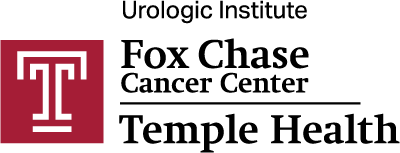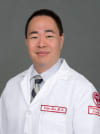The Potential for Bronchoscopic Interventions in Chronic Bronchitis
Program Goals

Chronic bronchitis (CB) is a clinical diagnosis characterized by chronic cough and phlegm production. It is typically associated with cigarette smoking and puts individuals at risk for respiratory exacerbations, reduces health related quality of life, and mortality. Current treatment options are limited and are largely ineffective. This program will focus on the new bronchoscopic interventions that are under development for the treatment of chronic bronchitis. The goals of this program are to briefly review the pathophysiology of chronic bronchitis, describe the current landscape of medical therapy, and to discuss the potential of bronchoscopic therapies in the treatment of chronic bronchitis. This activity will inform physicians and advanced practice providers about how these therapies work, the benefits of bronchoscopic therapies, and when to refer for evaluation for treatment.
Target Audience
Pulmonologists; Critical Care Specialists; Internal Medicine and Primary Care Physicians; Physician Assistants; Advanced Practice Nurses; and Nurse Practitioners.
Learning Objectives
After the conclusion of this activity, participants should be able to:
- Describe the pathophysiology of chronic bronchitis.
- Identify current treatment options for chronic bronchitis.
- Recognize that medical therapy for chronic bronchitis is largely ineffective.
- Summarize the potential benefits of new bronchoscopic therapies for chronic bronchitis.
Faculty
Victor Kim, MD, ATSF, FAASM
Professor, Thoracic Medicine and Surgery
Lewis Katz School of Medicine at Temple University
Director, Pulmonary Outpatient Clinic, Temple University Hospital
Educational Activity Agenda
Educational Presentation (33 minutes)
Post Test, Evaluation & Certificate delivery (15 minutes)
Total Activity: (48 minutes)
Release and Expiration Dates
Release Date: August 16, 2022
Expiration Date: August 16, 2024
Disclosure Policy
It is the policy of the Lewis Katz School of Medicine at Temple University, The Albert J. Finestone, M.D., Office for Continuing Medical Education that anyone in a position to control the content of a certified educational activity must disclose any financial relationships with ineligible companies within the prior 24 months. The Accreditation Council for Continuing Medical Education (ACCME) defines ineligible companies as “those whose primary business is producing, marketing, selling, re-selling, or distributing healthcare products used by or on patients.” Speakers must also disclose discussions of unlabeled/ unapproved uses of drugs or devices during their presentations. The Lewis Katz School of Medicine at Temple University has policies in place that will identify and mitigate all conflicts of interest prior to the educational activity. Detailed disclosure will be communicated to learners prior to the activity.
Faculty Disclosures
The faculty disclosed the following financial relationships with ineligible companies related to the content of this educational activity.
Victor Kim, MD, ATSF, FAASM
• Gala Therapeutics (consultant)
• AstraZeneca (consultant)
Course Directors, Planners, Reviewers, and Managers/CME Staff Disclosures
The course directors, planners, reviewers, and managers/CME staff disclosed the following financial relationships with ineligible companies related to the content of this educational activity:
Victor Kim, MD, ATSF, FAASM (Planner and Faculty)
• Gala Therapeutics (consultant)
• AstraZeneca (consultant)
Gilbert D'Alonzo, DO (Reviewer)
• Nothing to disclose
Heather Greaves (Manager)
• Nothing to disclose
Arnold I. Meyer, Ed.D, FACEHP (Planner and CME Staff)
• Nothing to disclose
Katrina Ilagan (CME Staff)
• Nothing to disclose
*All of the relevant financial relationships listed for these individuals have been mitigated.
Accreditation Statement
 Lewis Katz School of Medicine at Temple University is accredited by the Accreditation Council for Continuing Medical Education (ACCME) to provide Continuing Medical Education for physicians.
Lewis Katz School of Medicine at Temple University is accredited by the Accreditation Council for Continuing Medical Education (ACCME) to provide Continuing Medical Education for physicians.
Certification Statement
Lewis Katz School of Medicine at Temple University designates this enduring material for a maximum of 0.75 AMA PRA Category 1 Credit(s)™. Physicians should claim only the credit commensurate with the extent of their participation in the activity.
How to Obtain CME Credit
Attendees are expected to view all presentations before attempting to take the test and/or complete the activity evaluation. Successful completion will lead to the issuance of a certificate for AMA PRA Category 1 Credit(s)™. To receive credit, the course must be completed between August 16, 2022 - August 16, 2024.
Participation in this activity should be completed in approximately 0.75 hour(s). Please follow these steps in order to receive CME/CE credit for viewing the webcast:
• Read all of the CME/CE accreditation information above.
• View the complete electronic (web) activity.
• Click on the link to apply for CME/CE credits.
• Complete the online registration (registration is free).
• Complete the online test and/or evaluation. Participants must receive a test score of at least 75% and answer all evaluation questions to receive a certificate.
After successfully completing the online test and/or evaluation, your application will be immediately processed, and you will be given the opportunity to download a personalized CME/CE certificate for participation in this activity.
Should you have any CME questions regarding this activity, please contact:
The Albert J. Finestone, MD Office for Continuing Medical Education
Lewis Katz School of Medicine at Temple University
3500 North Broad Street
11th Floor MERB, Room 1111S
Philadelphia, PA 19140
Main CME Phone: 215-707-4787
Fax: 215-707-8268


